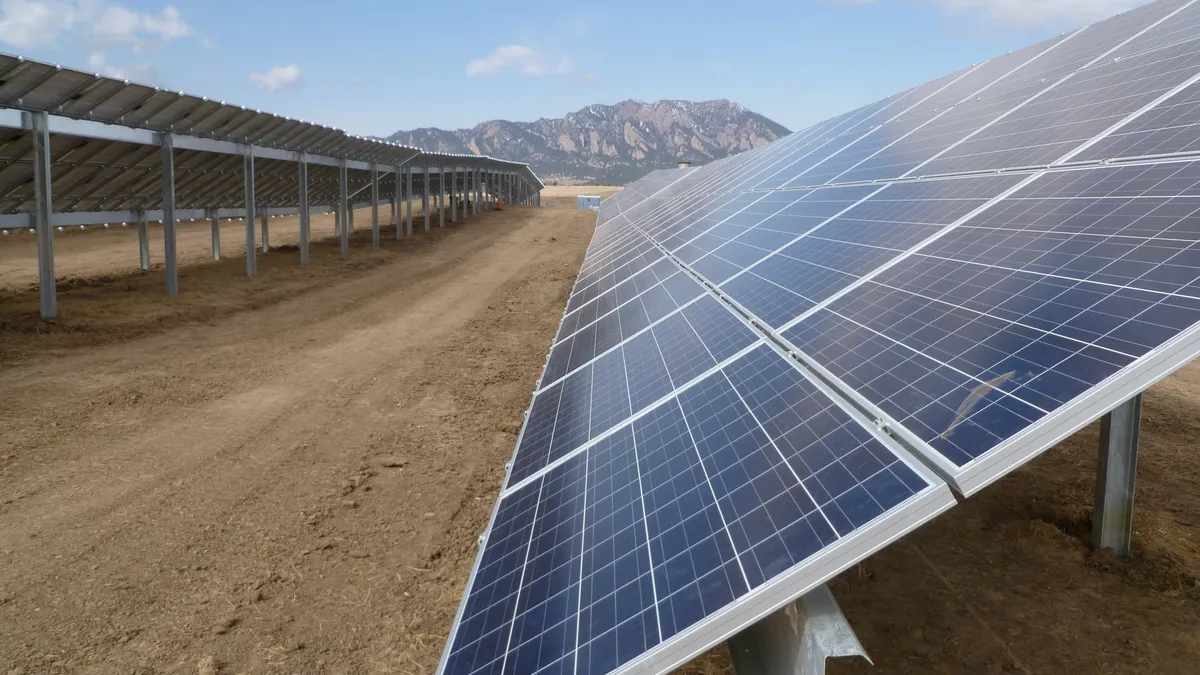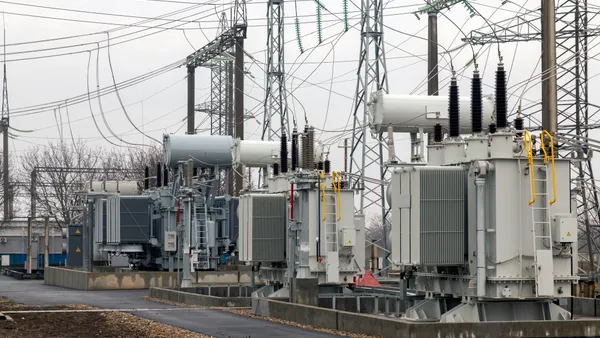Dive Brief:
- The Colorado Energy Office just gave $1.2 million in grant funding to non-profit solar builder GRID Alternatives to allow it to build, in coordination with utilities, 5 to 12 community solar demonstration projects of between 50 kW and 500 kW that will provide electricity to at least 300 low-income families.
- GRID Alternatives will offer four year subscriptions to the community-owned arrays and expects the solar will provide at least 50% of the families’ electricity use at a reduced rate or at a long term fixed rate as the price of retail electricity rises.
- The U.S. community shared solar market will add 115 MW in 2015, a roughly 500% year-on-year increase in growth over the 21 MW added in 2014, and almost twice the 66 MW cumulative installed capacity at the end of last year, according GTM Research’s "Community Solar Outlook 2015-2020."
Dive Insight:
GTM Research forecasts 59% annual growth for community solar over the next five years to reach an annual capacity addition of 500 MW and a cumulative installed capacity of 1,800 MW in 2020. Some 29 developers are now working in community shared solar development but sector leaders Clean Energy Collective and SunShare account for 32% the capacity now online.
The hopes of those who see community arrays increasing solar access could be stymied if a recent Xcel Energy Colorado policy spreads.
According to local developers, Xcel recently announced it intends to accept negative Renewable Energy Certificate (REC) offers from Colorado community solar developers in competitive bidding because it believes a July regulatory ruling grants that privilege.
Negative REC pricing, according to SunShare, would likely drive it and other community solar developers to focus their customer acquisition on the commercial and industrial rate class and bypass lower income residential customers.
Xcel says negative REC bids are within the regulatory construct. In a reply to the Colorado Solar Energy Industry Association (SEIA), Xcel argued that "bidders are free to bid whatever prices they wish, so if your members believe that a negative bid price is too low, they do not need to offer such a price. That, however, should not restrict the offers of other bidding developers."














